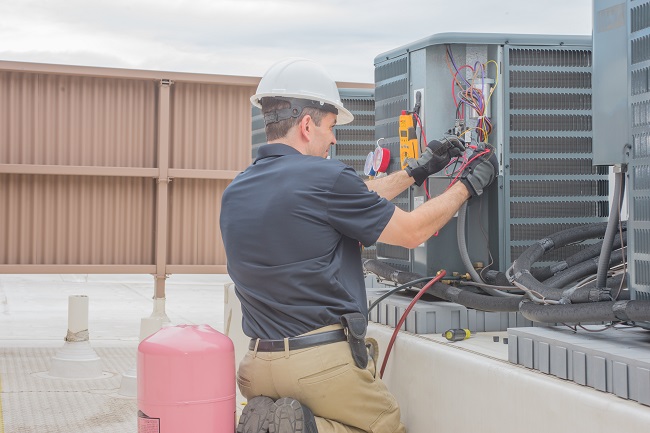What Is the Root Cause for Most Commercial A/C Malfunctions?
Different environments lead to different breakdowns: a southern office building will be using an HVAC unit heavily throughout the summer while a northern retail space will keep the heater running throughout the winter. High traffic will also lead to faster wear, and gas units face different difficulties from electric ones. However, most problems stem from one central factor: not enough preventative maintenance.

How can you ensure your commercial A/C units are being well-maintained so they last with minimal costly repairs?
If you manage or own one commercial building, maintaining a schedule for maintenance, inspections, and filter replacement can be done with a spreadsheet and a calendar. But if you are responsible for many buildings, or you live far away from your real estate, you should consider a maintenance agreement with a local HVAC company or contractor. Not only will working with the same provider mean that you have someone familiar with the individual quirks of your unit, but they maintain a full reminder system for filter replacements, annual inspections, and fall or spring tune-ups. These agreements might even get you better deals on service, and any money spent on prevention is better than money spent on repairs and replacement.
Another step you can take is to install smart thermostats in your buildings. These devices can monitor and regulate temperature, humidity, and air quality so you can get a breakdown of a tenant’s use of a system. This can help you adjust maintenance schedules and even get an alert when a particular HVAC starts needing more and more energy to maintain the same temperature, which is often a sign of dirty coils or an impending malfunction.
Whether you arrange for routine maintenance or you keep an eye on your HVAC’s usage and efficiency, knowing to keep your air conditioning units clean and well-maintained can save you money in both the short- and long-term. Call Texas Air Tech here to schedule maintenance and an inspection.
